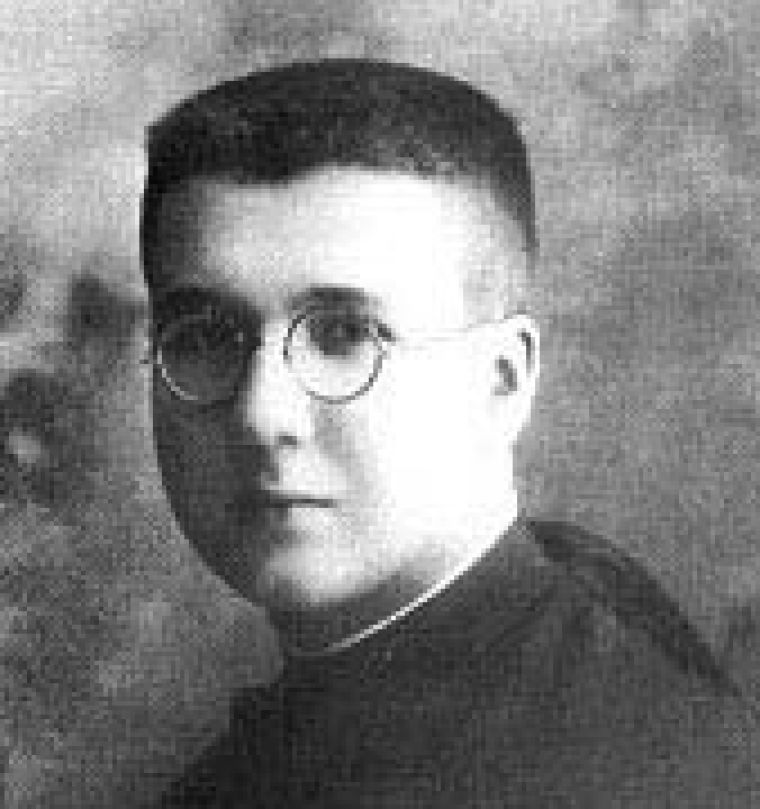
The status of Opus Dei was recently raise when Pope John Paul II gave permission to canonise Josemaria Escriva the founder of Opus Dei in 2003 at a huge ceremony in Rome. It was reported that Opus Dei flourish due to the similarity between the Pope and Josemaria who both hold deeply conservative Catholicism views.
The negative publicity is attributed to Brown: “Choosing a murderous Opus Dei monk as his most sinister character” has galvanised Opus Dei to open its door to Lateline in order to counter these unfavourable conceptions. ABC religion reporter Stephen Crittenden believes Opus Dei is becoming more confident in the last 10 years since: “They got their personal prelature and their founder was made into a saint.”
Josemaria Escriva receives a vision in 1928 that lead him: “To help lay people sanctify their ordinary life which they define as a ‘universal call to holiness’. Several ranks were introduced where apart from priests the position of numerary appears. Numerary are single man or woman who are celibate member that commit their lives to Opus Dei and most of their salaries.”
The Way a handbook publish by Saint Escriva is use to guide Opus Dei members who possess several attributes which distinguish them.
First Numeraries live in single houses to free them from distractions and temptations with the central theme being sexuality, purity and chastity. They seek jobs in professions and shun close relationships with opposite sex. This segregation is strictly enforces in all Opus Dei facilities. Saint Escriva wrote: “Among the chaste are found the finest men in every way. The lustful predominates the timid, the selfish, the treacherous and the cruel-characters of little manliness.”
Opus Dei priest Father John Flader believe the current living environment is one of ‘hedonism, unbridled sexuality and sexual freedom which result in devastating consequences.’ He state: “Married and single people want to bring Christ, decency and chastity back into marriage and back into life in general so it is not only numeraries who are detached from sexuality.”
For Andrew Mullins the principal of Redfield College celibacy is something very personal and he ‘understand in his own soul that this is what God asks of me.’
Another feature is on every Easter Spanish Catholics witness the ritual parade of ‘flagellation or body mortification to emulate Christ suffering and purge away sinful thought.’ Although Australian members do participate in this ritual they are encourage to wear a ‘cilice’ which Lateline has reported is: “A spiked chain worn high around the thigh to avoid detection.” Saint Escriva wrote: “They shall maintain the pious custom for the purpose of chastising the body and reducing it to servitude, of wearing a small cilice for at least two hours daily..."
Mr. Mullins wore the cilice since he believes in the end it is not healthy to make life as comfortable as possible. He said: “The best motive to do any sacrifice is love of God. If you don’t do it out of love of God, then probably you shouldn’t be doing it.”
For Richard Vella the deputy master for Warrane College sees it as: “Self-denial or mortification where the key thing is to imitate Jesus Christ.”
Father Flader believes bodily mortification is common in Australia by using the example of people going to a fitness centre who ‘sweat, puff and punish their body for the noble of fitness, health and beauty.’
Mr. Crittenden state: “Opus Dei is a bunch of little localised bubbles and within it is a replica of their fantasy church where it is controlled from top to bottom by priests. So Opus Dei is a group of priests and their supporters.” Father Flader describe: “Opus Dei as an army living in society, the light of the world which is like all the Christian faithful. All have been baptised by this mission where the members receive more to do it in terms of doctrinal and spiritual human help which make them better equip than others”.
These advices are adheres to very strictly. Mr. Mullins model Redfield College on the Opus Dei School set up in Spain by Saint Escriva where he admits ‘censoring books containing sexually explicit materials, nihilism or those that denigrate marriage.’ Mr. Vella says: “He always asks his spiritual adviser before reading text but deny claim that Opus Dei has a secret index of forbidden books. He does have access to a bibliography like a resource where he can access to find out different books written on a whole range of issue which was reviewed by both Opus Dei and non-Opus Dei academics.” Further Mr. Vella has deny that Opus Dei forbid him to not read certain books.
Supernumeraries refer to married members where Greg and Vanessa Bookalill send their children to Redfield College to maintain a plan of life which includes: “Daily mass and weekly guidance meetings with their spiritual director.”
Critics have label Opus Dei as: “Elitist with questionable recruitment practices aimed at the powerful and wealthy”. They also argue that: “The strict rules and practices such as bodily mortification could unhinge some members.” For them the extreme case is “The spiritual director exerting a form of mind control over some weaker member.”
Father Flader state: “Weak minded people are never invited to join because they need soldiers not the one who are bellicose and go out with weapons but people who stand on their own feed.”
Lateline has reported that the chief spiritual director in Australia Vicar George Rossman hold the ultimate power where he decide who can become a member of Opus Dei.